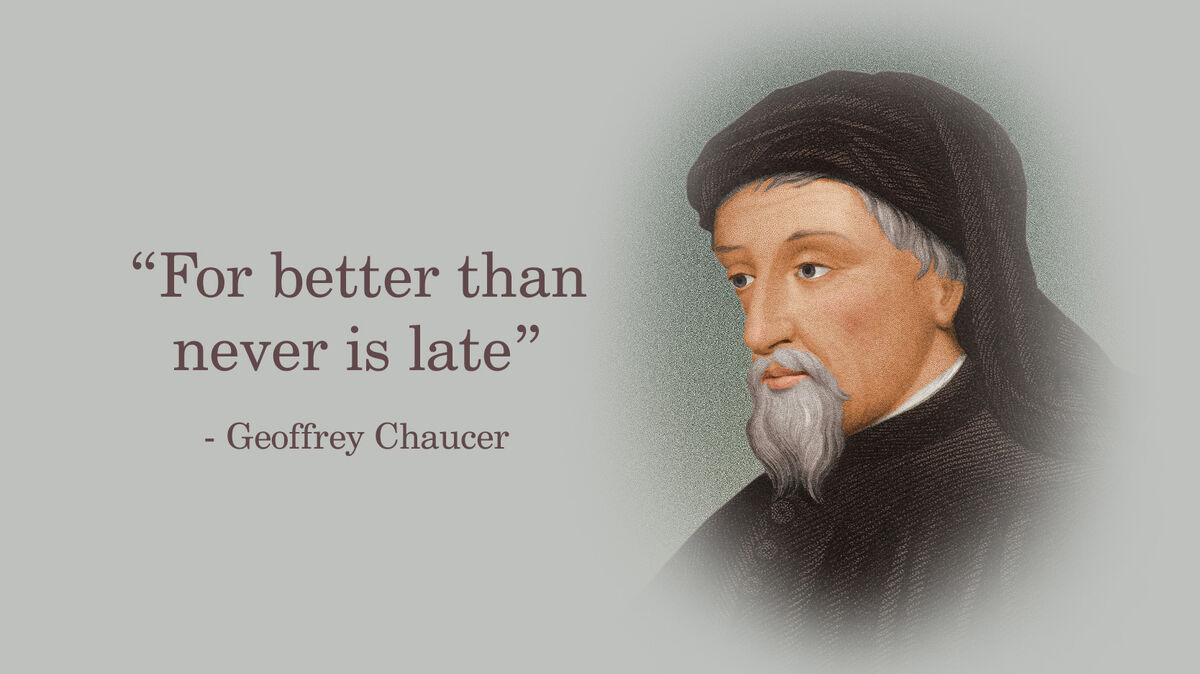
Famed English poet Geoffrey Chaucer became known as “the father of English poetry” because he was one of the first in the 14th century to write poetry entirely in English. His mastery of narrative verse showcased his range as a poet.
Quotes From 'The Canterbury Tales'
The most well-known work by Geoffrey Chaucer (1345-1400) is The Canterbury Tales. This collection of poems and prose wasn’t actually finished by Chaucer before his death, but its impact has been historic anyway.
“O destiny, you cannot be eschewed!” - “The Nun’s Priest’s Tale”
“ Behold how Fortune turns all suddenly / The hope and pride of even her enemy!” - “The Nun’s Priest’s Tale”
“For Saint Paul says that all that's written well / Is written down some useful truth to tell” - “The Nun’s Priest’s Tale”
“Men may the old out-run, but not outwit.” - “The Knight’s Tale”
“As sooth is said, age hath great advantage, / In eld is both wisdom and experience.” - “The Knight’s Tale”
“For one thing, Sires, safely dare I say, / That friends ever each other must obey, / If they will longe hold in company. / Love will not be constrain'd by mastery.” - “The Franklin’s Tale”
“For better than never is late” - “The Canon’s Yeoman’s Tale”
“And gladly would he learn, and gladly teach.” - “The Prologue”
Quotes From Chaucer’s Other Poems
Most of Chaucer’s poems are long narratives that showcase both humor and tragedy.
“For with my deth the trouthe shal be sene.” - “Merciles Beaute”
“And to my lady, which I love and serve, / Be true and kind, her grace for to deserve.” - “The Court of Love”
“For lovers be the folk that be alive” - “The Cuckoo and the Nightengale”
“And out of olde bookes, in good faith, / Cometh all this new science that men learn.” - “The Assembly of Fowels”
“And next the darke night is the glad morrow, / And also joy is next the end of sorrow." - “Troilus and Cressida”
“God loveth, and to love he will not wern forbid / And in this world no living creature / Withoute love is worth, or may endure.” - “Troilus and Cressida”
“And, for there is so great diversity / In English, and in writing of our tongue, / So pray I God, that none miswrite thee, / Nor thee mismetre for default of tongue!” - “Troilus and Cressida”
Exquisite English Words
The English language was much different back when Chaucer was writing, so some of his quotes can be a challenge to read, even when they’ve been translated using more modern English. Get acquainted with some old words to help bridge the gap between past and present.